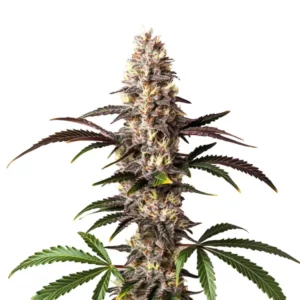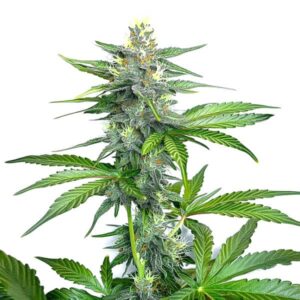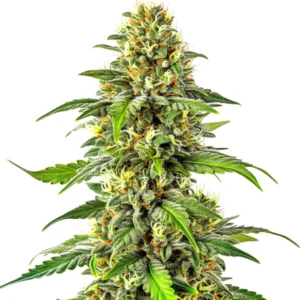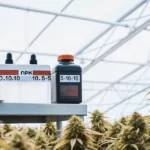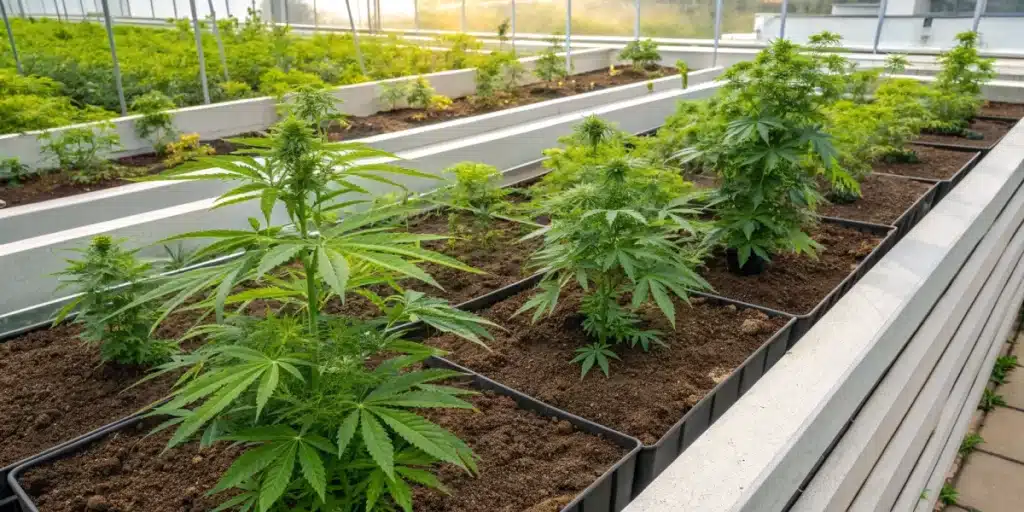
Artificial Fertilizers Pros and Cons: A Balanced Analysis
What Are Artificial Fertilizers?
Artificial fertilizers, also known as synthetic fertilizers, are man-made substances that supply essential nutrients to plants, boosting growth and productivity. Unlike organic fertilizers derived from natural sources like compost or manure, artificial fertilizers consist of chemical compounds created using various processes. This marked difference sparks debates regarding their use in agriculture and gardening.
The production of these fertilizers involves chemical processes that extract and synthesize nutrients such as nitrogen, phosphorus, and potassium. When applied correctly, artificial fertilizers accelerate growth and yield impressive harvests.
Recommended Strains
Auto Purple CBD
|
|
CBD | 17% – 19% (Medium) |
|
|
Type | CBD Autoflowering |
|
|
Yield | Low |
|
|
Phenotype | 70% Indica / 30% Sativa |
Big Bud Fast Version
|
|
THC | 14% - 17% (Medium) |
|
|
Type | Fast Flowering |
|
|
Yield | Medium |
|
|
Phenotype | 95% Indica / 5% Sativa |
Common Types and Formulations
Artificial fertilizers appear in various formulations, each designed to meet specific nutrient needs. Many producers offer granular, liquid, and slow-release types. Granular fertilizers provide ease of application, while liquid fertilizers act swiftly to offer immediate nutrition. NPK fertilizers remain a popular choice because they contain balanced ratios of nitrogen (N), phosphorus (P), and potassium (K), supporting critical aspects such as root development and flowering.
Their Use in Modern Agriculture
In modern agriculture, artificial fertilizers play a pivotal part in meeting increasing food demands. Farmers now apply these products with precision by tailoring nutrient delivery to specific crop requirements. This practice not only boosts crop yields but also helps reduce the environmental footprint. Farmers adopt precision farming techniques, monitoring soil nutrient profiles closely and adjusting synthetic inputs accordingly to minimize waste and curb environmental harm.
Promos & Deals
Advantages of Artificial Fertilizers
Quick Nutrient Delivery
One significant benefit of artificial fertilizers lies in their capacity to deliver nutrients quickly to plants. Because these products consist of chemically formulated ingredients, they dissolve rapidly and provide immediate nutrition. Farmers observe rapid improvements in plant vigor and growth rates, which prove critical during urgent developmental stages. This rapid nutrient supply supports farmers in achieving impressive yields and maintaining competitive production schedules.
High Nutrient Content
Artificial fertilizers typically offer high nutrient concentrations. Their concentrated formulas lead to significant crop improvements, attracting commercial growers who seek large yields in minimal time. The ability to modify nutrient formulations allows farmers to tailor nutrient ratios precisely for various crops.
However, because these fertilizers are so concentrated, precision is key. It is very important to measure formulas carefully and to manage the pH of the irrigation water, keeping it around 6.0 for many high-value crops. This ensures that the plants can absorb the maximum amount of nutrients with minimal waste, preventing issues like nutrient lockout or an over-accumulation of nitrogen in the soil.
Improved Crop Yields
Improved crop yields drive many farmers to rely on artificial fertilizers. With the global demand for food constantly on the rise, synthetic fertilizers become vital for boosting both quantity and quality. Scientific research illustrates that crops treated with synthetic fertilizers often report better growth outcomes. By investing in precision application techniques, growers ensure that nutrient delivery remains efficient and effective.
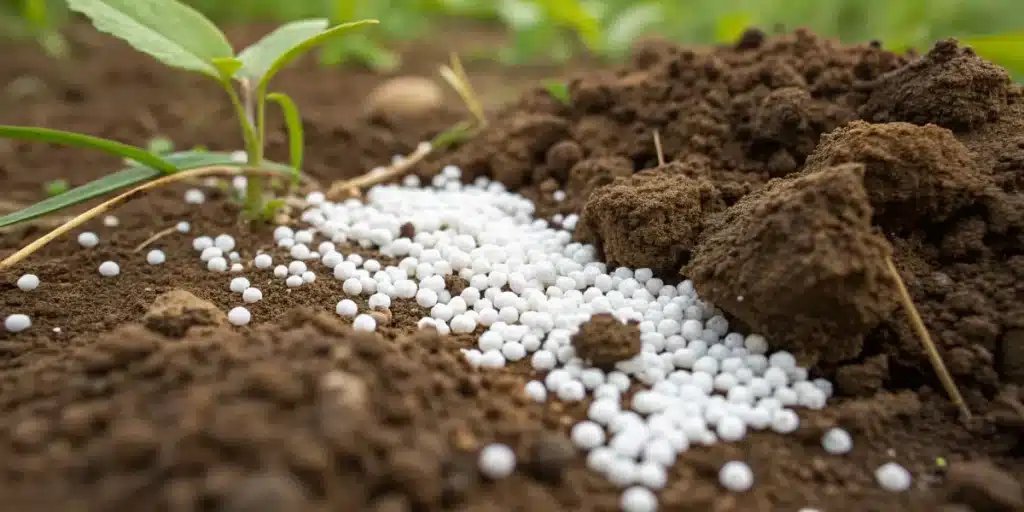
Disadvantages and Environmental Impact
Potential Soil Degradation
Despite their benefits, artificial fertilizers can lead to soil degradation over extended periods. Frequent use may cause nutrient imbalances, which alter the soil’s natural makeup and degrade fertility. Excessive use also disrupts the ecosystem of beneficial soil microorganisms that help cycle nutrients.
To combat the buildup of mineral salts that leads to this degradation, many growers who use artificial fertilizers implement a preventative maintenance routine. A common practice is to perform a ‘root flush’ every couple of weeks. This involves watering the soil with a large volume of pH-adjusted water, typically around 5.5, to dissolve and wash away the excess salts, preventing them from reaching toxic levels.
Water Pollution Concerns
Water pollution presents another serious issue. When farmers apply these chemicals improperly or excessively, they can leach into waterways and create nutrient runoff. This runoff often triggers harmful algal blooms that deplete oxygen and endanger aquatic life. High concentrations of nitrates and phosphates in water sources endanger human and animal health.
Negative Effects on Microbial Life
The health of soil microbial communities remains vital. Overuse of artificial fertilizers may suppress microbial diversity and activity, leaving soils less resilient. Farmers face reduced soil fertility when the microbial balance suffers from overreliance on synthetic products.
Comparison with Organic Alternatives
When comparing artificial fertilizers with organic alternatives, cost, efficiency, and sustainability are critical considerations. Synthetic fertilizers often carry lower upfront costs and deliver quick results. Organic fertilizers, in contrast, nurture soil biology and build natural fertility over time, promoting long-term resilience. Fertilizers also directly affect the quality of the final product. Organic farming practices often result in tastier and more nutrient-rich produce, which is increasingly sought after by consumers.

FAQs about artificial fertilizers pros and cons
What are the main benefits of using artificial fertilizers?
Artificial fertilizers offer quick nutrient delivery, high nutrient density, and increased crop yields, making them a reliable option for farmers aiming to maximize productivity and efficiency. Many growers analyze artificial fertilizers pros and cons when deciding whether to adopt these products as part of their nutrient management strategy.
How do artificial fertilizers affect soil health over time?
Regular use of synthetic fertilizers may boost short-term plant growth; however, they sometimes alter soil structure, potentially leading to nutrient imbalances and reduced microbial activity. Many experts evaluate artificial fertilizers pros and cons to find balanced solutions that maintain soil vitality while still achieving high yields.
Can organic alternatives fully replace synthetic fertilizers?
Organic alternatives can enhance soil health and sustain long-term fertility; yet, they might not completely substitute for synthetic fertilizers in every situation. Many farmers assess artificial fertilizers pros and cons and choose a balanced approach that integrates both types for optimal productivity and environmental safety.






